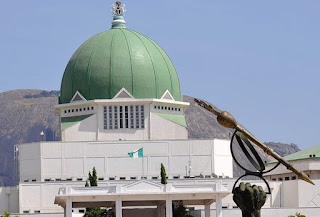Ten Reasons Why The 8th Senate Is Different By Yusuf D. Sani
For about 28 years now, the National Assembly of Nigeria has evolved from one dispensation to another. Right now, we happen to be in the dispensation of the 8th Assembly, with an All Progressives Congress majority led by Dr. Abubakar Bukola Saraki as the Senate President of the Federal Republic.
Since the Senate resumed plenary on July 28th 2015, Nigerians have watched them act in a manner that is different from its predecessors. So far, these are 10 ways this Senate has proven to be different:
Commitment to #OPENNASS:
On the 6th of August, the Senate President, Abubakar Bukola Saraki challenged the Senate Committee on Rules and Business to evolve an e-parliament system. The introduction of this system by the 8th assembly is like giving Nigerians a magnifying lens to look into the affairs of the upper chamber. Many believe that this is the start of a more #OPENNASS that will ensure total transparency and help in the fight against the mismanagement of Nigeria’s commonwealth.
Concern for the Youths:
“When young people succeed politically, socially, and economically, we all succeed as a nation.” – Dr. Saraki
On the 12th of August, in commemoration of International Youth Day, the Senate President hosted the National Working Committee of the All Progressives Youth Forum (APYF) in his office. At this meeting, the Senate President called for more youth inclusion in governance, and backed up these remarks in another statement on Monday, 31st August 2015, where he called for the appointment of more youths to government offices.
Creating Bridges between Representatives and the People:
Aside from the e-Parliament system, which is aimed at fostering transparency, the Senate has gone ahead to open an Official Twitter Account ‘@NGRSenate.’ This is one major step that will bring the Senate closer to every Nigerian, as citizens will be able to tweet their complaints directly to their representatives in the legislative branch.
Tactical Approach to Problem-Solving:
In its handling of the EU Export Ban Affair, the distribution companies bulk billion of consumers, and the probe of the power sector, the Senate has demonstrated that it is not after the effects of problems but it is after tacking the root of the effects. So far, it has successfully abolished the practice of bulk billing, directed NAFDAC and SON to ensure the standardization of Nigerian agricultural produce, and started a much-needed probe of the power sector. All in less than 100 days…
Focusing on the most affected parts of the society:
On the 3rd of August 2015, the Senate President, Dr. Abubakar Bukola Saraki led a delegation on a spot assessment of the situation on ground in Maiduguri, Borno State. Since then, the Senate has promised rehabilitation legislation, as well as sought the cooperation of other international legislative bodies in creating collaborative approaches to combating terrorism.
Focus on Nigeria’s Economy:
The leadership of the Senate has worked to grow Nigeria’s economic potential by meeting with prospective multinational investors like the Blackstone Group, as well as representatives from different countries like Germany, France, India, and Saudi Arabia a to foster stronger economic ties with Nigeria through collaborative legislation.
Ready to Step on Toes:
The Senate has launched probes into the Power Sector, which has gulped billons of Naira yet experience, no changes over the past few years. The Senate has also begun a probe of the Economic and Financial Crimes Commission (EFCC), which has been accused of diverting seized funds, into the personal pockets of some of the EFCC’s leaders.
Living up to their Campaign Promises:
The Senate President, Dr. Abubakar Bukola Saraki, has led the Senate to make crucial, but often, difficult decisions that aim to live up to the mantra of ‘Change’ that the ruling All Progressives Congress (APC) campaigned on. They have worked in sync with the ruling parties’ ‘Roadmap to a New Nigeria’ to ensure that their parties’ campaign promises are met.
Making Effective Use of Its Time:
Past Senate have focused on meandering round issues at the beginning of their tenure, and forcing through numerous pieces of legislation toward the end of the legislative calendar. With only 14 sittings so far, the 8thSenate has turned this trend, and has instead worked to pack as many legislative activities into its early activities as possible.
Yusuf D. Sani is a freelance journalist who writes from Minna, Niger State.


Comments
Post a Comment